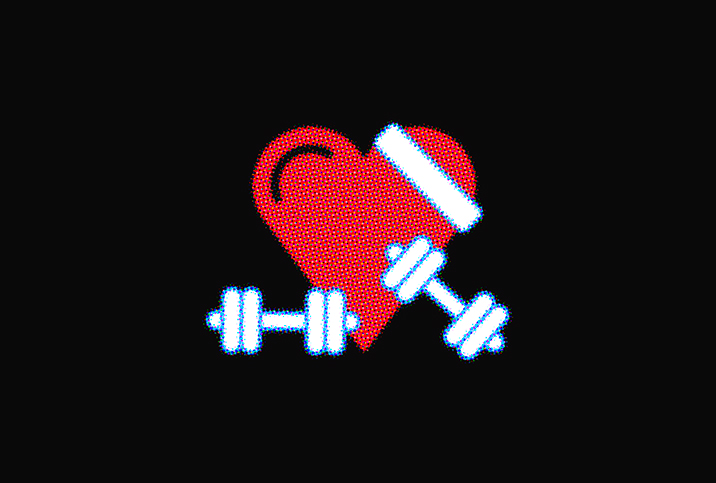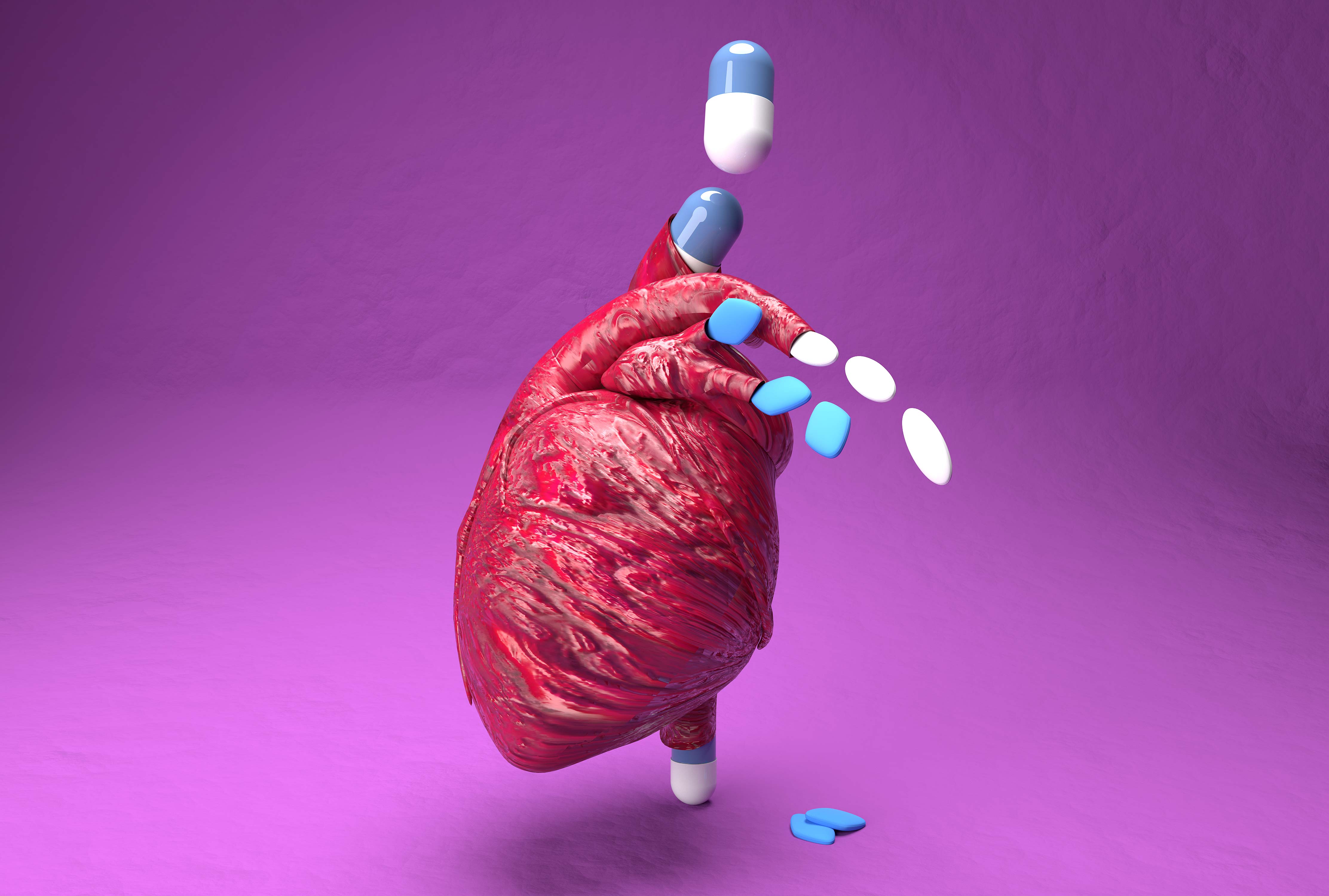Preventing Heart Disease Is Simple, but Not Always Easy

There's a good chance we already know what's going to kill you: Heart disease is the top cause of death worldwide. In the United States, more than 650,000 people die from heart disease every year, about 1 in 4 deaths. That means an American dies of a cardiovascular disease every 36 seconds.
Eighty percent of these deaths are preventable.
Known cardiac risk factors include high blood pressure, high cholesterol, diabetes and obesity, as well as habits such as having a sedentary lifestyle and smoking cigarettes.
Living a heart-healthy lifestyle is simple, but not easy. Modern American society isn't set up to support heart health. We live in a fast-moving culture that doesn't prioritize healthy living. We don't build walkable communities. We have high stress and little support.
Strategies to improve heart health
We have little or no control over certain aspects of our lives, but each of us can take steps to improve our own health and skew the heart disease odds in our favor.
Nutrition
"It is never too late to improve your diet for heart health," said Michelle Routhenstein, owner of EntirelyNourished.com and a nutritionist and dietitian focused on improving heart health. "We need to eat foods that provide all the vitamins and minerals for optimal heart health to improve blood flow, regulate your heartbeat and keep your arteries healthy."
Routhenstein coaches clients about what foods to incorporate into their diet, squeezing out the less helpful foods and focusing on ones that specifically aid health.
"For example, science-based nutrition can help lower blood pressure by widening the arteries and reducing the constriction in the arteries," she explained. "Consuming foods rich in folates, such as asparagus and avocados, helps reduce tension in the arteries, which helps improve blood flow."
If you're thinking you might already be a lost cause, Routhenstein is quick to once again emphasize it's never too late to start caring for your heart.
"Plaque formation is a progressive disease and it has multiple stages," she said. "By optimizing your lab results and other health data, reducing your risk factors and adding in a science-based, nutrient-sufficient diet for heart health, you can reduce your risk of heart disease and its complications."
Exercise
"Much evidence shows us that exercise has direct links to preventing and reducing mild to chronic heart conditions," said Emily Marquis, a clinical health coach based in Salida, Colorado, and certified by the National Board for Health and Wellness Coaching.
"Creating an exercise routine can feel daunting if we aren't already doing it," she added. "It can be a barrier to someone starting a routine if they think they have to be a runner when they have bad knees or play volleyball when they can't stand competitive sports. It's important to find movement that works for you, something you enjoy and can fit into your life on a regular, long-term basis."
Marquis offered tips on how to increase physical activity in your daily routine.
"It can look different each day or season. The important thing is just to move," she recommended. "Try walking a little longer around the block, doing a beginner yoga video at home, dancing, swimming, hiking or joining a competitive sports league. You can offer yourself a health-related reward after you've accomplished your movement goal for a few weeks—perhaps a new pair of sneakers or some weights."
Sleep
"Sleep quality and sleep duration are directly linked to heart health, so it's important to look at the quantity and quality of your sleep," Marquis advised. "Sleep is the time when our bodies rest and digest. If we aren't able to do so adequately, our bodies are on alert and there are many rippled physiological responses that can have long-term impacts."
While many factors in this modern world negatively impact sleep, Marquis said implementing these tips can help improve the quality of your sleep:
- Turn off your electronics before bed and keep all of them out of the bedroom.
- Save your bed for sex and sleep only.
- Make your bedroom your own personal relaxation den with cool temperatures, a cozy mattress, essential oils, darkness and minimal clutter.
- Release natural melatonin by dimming all the lights in your house after dinner to signal to your brain it's time to wind down.
- Create a bedtime ritual of self-care, stretching, writing in a journal, snuggling or reading.
Alcohol
Research is mixed about the health effects of alcohol. It may have a positive effect on atherosclerosis, a disease where plaques of fatty deposits build up on artery walls. However, it negatively affects mitochondria—which create the chemical energy required for the human body to function properly—and increases inflammation and programmed cell death. It also damages the heart.
"Being mindful about your relationship with and intake of alcohol will make your heart happy," Marquis said. "You can try exchanging your alcohol for a healthy mocktail, meditation, a good book or a phone call to a loved one. Try to avoid alcohol too close to bedtime. Buy smaller containers so there isn't a need to finish a big bottle. Notice how well you sleep with less or no alcohol and soak that feeling in."
Hawthorn
Hawthorn is a spiny shrub whose cardiac benefits were documented as far back as the first century of the common era. Today, hawthorn is a popular cardiovascular tonic that has a wide range of health benefits, such as decreasing blood pressure, improving the health of the cells in the heart, preventing atherosclerosis and improving arrhythmias. Arrhythmias occur when electrical impulses in the heart don't work properly and the heartbeat becomes irregular, either too fast or too slow.
As a tonic, hawthorn works slowly and needs to be taken over a long period to reap benefits. Look for tinctures that incorporate the whole plant—berries, flowers and leaves—as they are the most effective.
Make an action plan
Marquis encouraged people to set realistic goals based on their lifestyle and values, comparing where they are currently to where they want to be in six months.
"Start with small, doable steps and avoid the lofty New Year's resolutions that often fail, causing discouragement and little actual change," she advised. "Approach change with an experimental, curious mindset, giving each new goal a period of trial and error. Then take what you learned, accomplished or bombed and build from there. Change is not linear, and in times of setback, build resilience by beginning again and leaning into your support system."


















